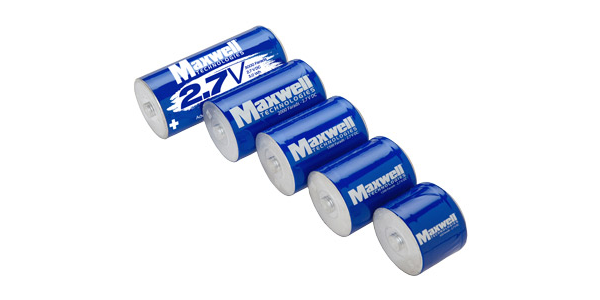Tesla integrates Maxwell into corporate structure
Tesla has now integrated the business of the acquired energy storage specialist Maxwell Technologies into its corporate structure. Meanwhile, the cooperation between Tesla and Panasonic is becoming increasingly difficult.
To fully integrate the battery innovation unit, Tesla appointed Chris Stewart as Head of Maxwell Ultracapacitors at Tesla. With the technology acquired through the acquisition of Maxwell, Tesla could, as reported, produce its battery cells in the future instead of relying on Panasonic. Whether the new integration concerns Maxwell’s ultracapacitors technology is unclear at this stage. It is more likely this is about the company’s new dry electrode technology for battery cells.
Yet, Tesla’s newfound independence is straining the otherwise fruitful relationship between the Californians and the Japanese. A new report by the Wall Street Journal speaks of a “culture clash” concerning the different management styles. Besides, Tesla has blamed the early delays in Model 3 production on Panasonic previously.
More so, Tesla has been moving away from solely relying on Panasonic with whom it runs the Gigafactory in Nevada. The new Shanghai facility, Gigafactory 3, will buy batteries from LG Chem’s local production in Nanjing. The latest news from September said LG Chem had started the production of battery cells for the China Model 3. This concerns 21700 cells, the same format Tesla uses for its Panasonic cells for Model 3. In its cells for Tesla, LG Chem uses NCM-811 chemistry, i.e. 80 per cent nickel and 10 per cent each cobalt and manganese. According to the report, at the request of Tesla, LG Chem is preparing an expansion of production at its battery plant in Nanjing.
Besides, when it comes to Tesla’s in-house expertise, Jeff Dahn and his team reported progress last month. Tesla has filed a patent for a new, more durable battery cell that should also be cheaper to produce. Jeff Dahn and his team are listed as inventors. The new cells with NMC chemistry are supposed to offer a service life of more than 1.6 million kilometres.
This is for the future though and Tesla battery production aside, it is likely for the relationship with Panasonic to continue, although it may take on the nature of a less exclusive supplier-buyer relationship.
wsj.com (culture clash, paywall), electrek.co (Maxwell)





0 Comments